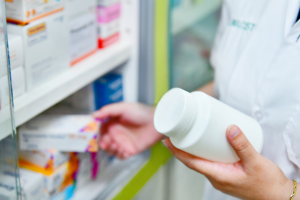Ethics
Internal codes of ethics that regulate the companies’ interactions
Pharmaceuticals are subject to laws, regulations and procedures in Israel and internationally in order to ensure the quality, safety and efficacy of medicines, vaccines and medical technologies.
Pharma Israel is taking action to improve and streamline the regulatory proceedings in Israel so that they encourage medical innovation and improve the public’s access to medicines. Pharma Israel maintains a continuous dialogue with the various authorities in the Ministry of Health who are responsible for regulating the pharmaceuticals sector.
Pharmaceutical registration
Israel does not have an independent drug registration authority like the FDA (in the United States) or the EMA (in the European Union). The Pharmaceutical Division of the Ministry of Health is the government entity responsible for supervising and controlling medical compounds in Israel. The Pharmaceutical Division’s roles are to ensure that pharmaceuticals being marketed in Israel comply with standards of quality, safety and efficacy, to manage the drug registry and the medical compounds registration system and to publish procedures that regulate the pharmaceuticals market.
The Pharmacists’ Regulations (Compounds), 1986, regulates the registration process in Israel. As a rule, a pharmaceutical imported to Israel may be registered only after it has been registered and approved for marketing in one of the following recognized countries: the United States, the European Union, Switzerland, Norway, Iceland, Canada, Australia, New Zealand and Japan. According to the regulations, the registration of a new medical compound must be completed within 270 days of the application submission date. It takes on average about 90 additional days to receive the certificates enabling the actual marketing of the pharmaceutical.
Pharma Israel is taking action to streamline the registration process in Israel, to shorten the registration times, and to adapt the registration process to the international standards. The organization is in frequent contact with the Pharmaceutical Division and participates in policy-setting and procedure-updating processes.

Control over medicines prices
The prices of prescription drugs in Israel are controlled by the ministries of health and finance and are set by virtue of the Control of Goods and Services Law, 1996, by the Control of Goods and Services (Maximum Prices for Prescription Drugs) Order, 2001 and the Control of Goods and Services (Application of the Law to Medicinal Compounds) Order, 2001.
The maximum price of a medicine in Israel is determined as an average of the three lowest prices in seven benchmark countries (Belgium, Spain, Hungary, France, England, Germany and Holland). If a suitable price is not found in three countries, the maximum price will be determined according to the average prices in two countries or in one country, as the case may be.
The updated price list is determined at the beginning of each year and, if needed, is updated mid-year according to the volatility in the exchange rates of the relevant currencies.
Advertising of pharmaceuticals
Advertising of a pharmaceutical requires the approval of the Ministry of Health, which is responsible for preventing any misleading of the public and for protecting the public’s health. According to the law, only nonprescription pharmaceuticals may be advertised. According to Ministry of Health procedures, it is permissible to increase public awareness of various illnesses that are treatable with a medicine registered in Israel by advertising in the various media.
Preventing pharmaceutical crime
The Ministry of Health has an anti-pharmaceutical-crime department tasked with eradicating phenomena of sales of counterfeit and stolen pharmaceuticals. The department works in cooperation with the World Health Organization.